Chronic Kidney Disease
Chronic Kidney Disease (CKD) Specialists in Arizona
SKI: Experts in Treating & Managing Kidney Disease
Serving patients since 1980, Southwest Kidney Institute (SKI) is one of the largest nephrology groups in the United States and is nationally recognized for renal care quality.
SKI provides a wide spectrum of services related to kidney disease including education, prevention, and treatment.

What is Chronic Kidney Disease?
Chronic kidney disease (CKD) is a gradual loss of kidney function that occurs over months or years and results in the buildup of waste products. It is generally caused by conditions that damage the kidneys, such as diabetes, high blood pressure and other disorders.
37 Million
People in the United States suffer from CKD.
Two - Thirds
Of all cases of CKD are directly linked to diabetes and/or high blood pressure.
Increased Risk
African Americans, Hispanics, Pacific Islanders, American Indians, seniors and individuals with a family history of kidney disease are at increased risk.
Progression of CKD can lead to renal failure and require dialysis and/or a kidney transplant. At SKI, our goal is to identify and treat CKD early to slow progression and keep it from getting worse.

What are the Symptoms of CKD?
Most patients will not have severe symptoms until CKD is advanced. Early symptoms of CKD include:
- Dry itchy skin
- Swollen feet and ankles
- Puffiness around the eyes, especially after waking up
- Needing to urinate more frequently, especially at night
- Muscle cramping at night
- Feeling more tired and having less energy
- Trouble concentrating
- Trouble sleeping
- Poor appetite
If you are consistently experiencing one or more of these symptoms, contact your primary care provider or schedule an appointment with a SKI physician.
What are the Stages of CKD?
To determine how well your kidneys are functioning, your SKI nephrologist will calculate the Glomerular Filtration Rate (GFR), which is derived from your blood creatinine, your age, race, gender and other factors. The GFR determines the stage of kidney function, of which there are five.
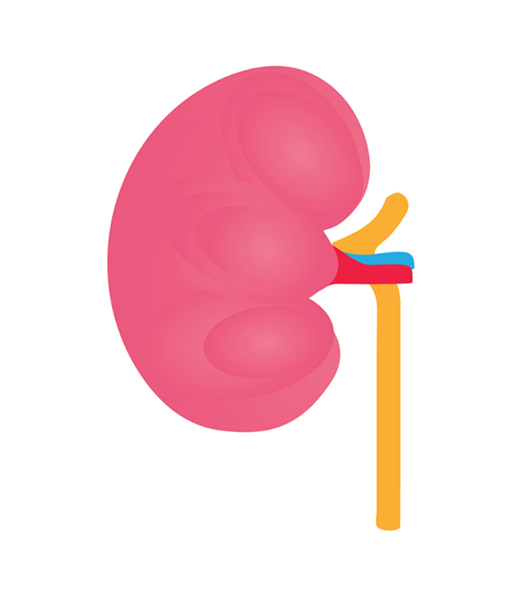
Normal
eGFR 100
- Working normally
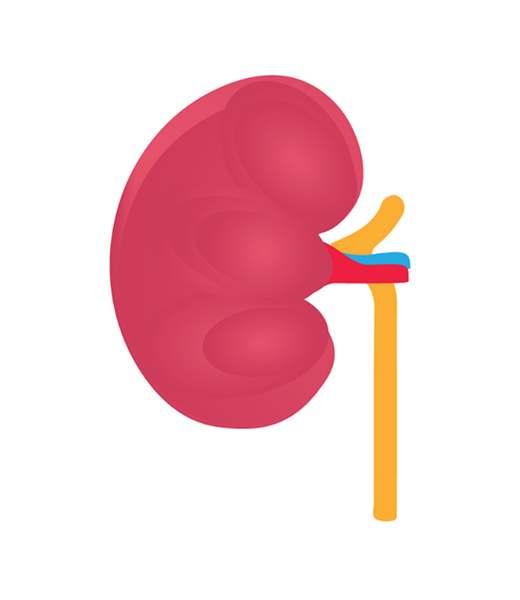
Stage 1
eGFR 90 or Higher
- Mild kidney damage
- Kidneys work as well as normal
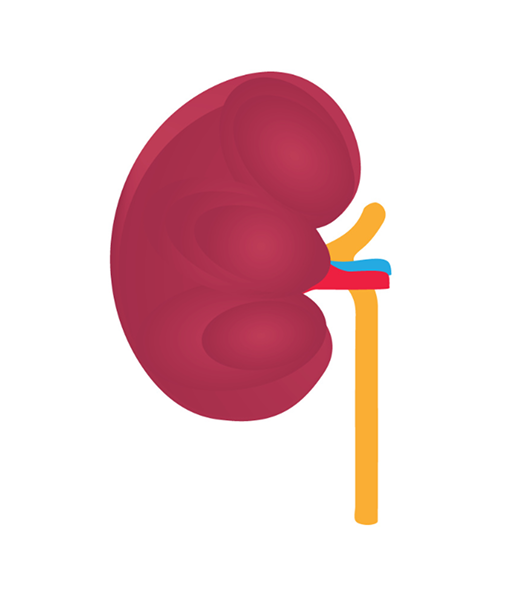
Stage 2
eGFR 69 – 89
- Mild kidney damage
- Kidneys still work well
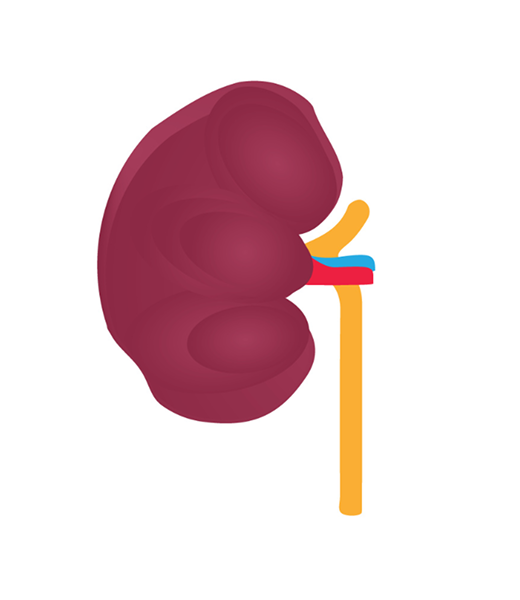
Stage 3
eGFR 45 – 30
- Mild to moderate kidney damage
- Working affected
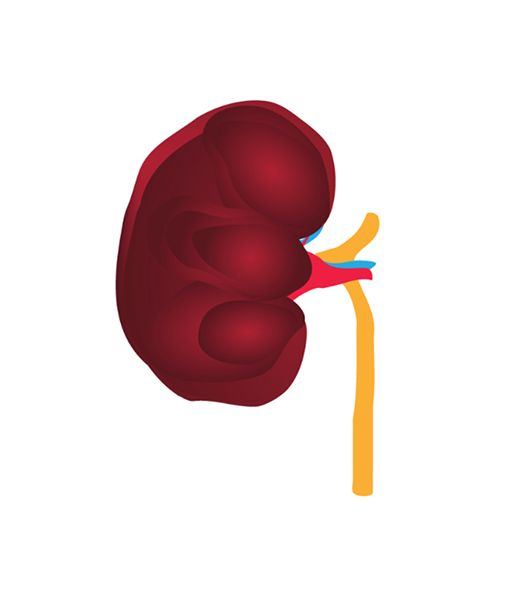
Stage 4
eGFR 15 – 29
- Severe kidney damage
- Kidney are close to not working at all
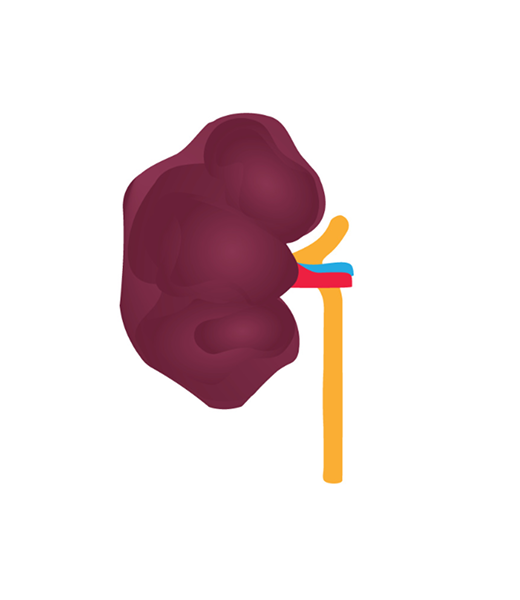
Stage 5
eGFR Less than 15
- Most severe kidney damage
- Kidneys are closed to stop working on failure
How is Chronic Kidney Disease Treated?
The treatment of CKD focuses on slowing its progression, managing symptoms, and addressing any complications that arise. Treatment plans are personalized based on the stage of the disease and any other health conditions you may have.
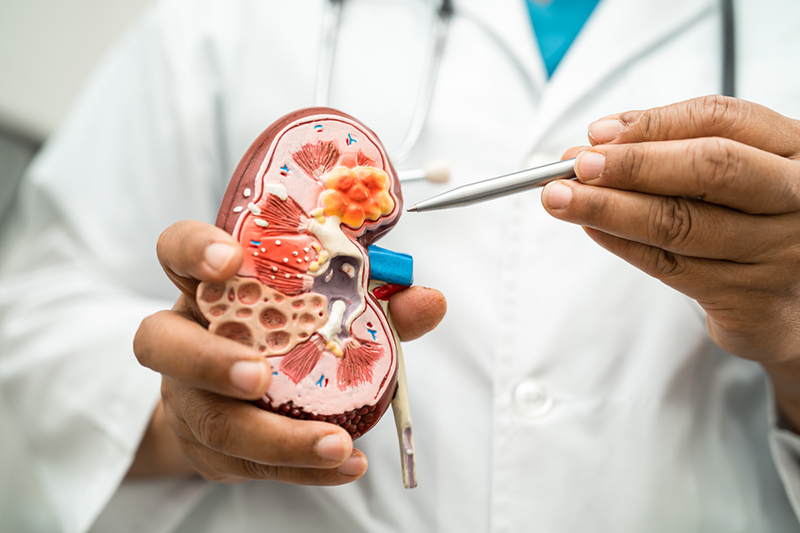
Some common treatment strategies include:
The treatment for acute kidney failure depends on the underlying cause and severity, but our goal is always to support kidney recovery. Most patients respond well to medical interventions, and some home remedies can complement your treatment plan. Here’s how we approach it:
- Lifestyle Changes:
- Adopting a kidney-friendly diet, low in sodium and protein, can contribute to maintaining and supporting kidney health.
- Engaging in regular physical activity and maintaining a healthy weight to promote overall kidney health.
- Quitting smoking and limiting alcohol intake.
- Medications:
- Blood pressure control: Keeping your blood pressure within a healthy range helps protect your kidneys.
- Medications to reduce protein in urine: These medications play a role in slowing the progression of kidney disease.
- Treatment for anemia: If CKD leads to anemia, medications may be prescribed to boost red blood cell production.
- Dialysis:
- If your kidneys can no longer filter waste effectively, dialysis may be necessary to help clean your blood. There are different types of dialysis, including in-center or at-home options.
- Kidney Transplant:
- In cases of advanced CKD (Stage 5), a kidney transplant could be a suitable treatment option to restore kidney function. Our team at SKI offers full support for the transplant process, from evaluation to post-surgery care.
At home, sticking to your treatment plan, maintaining a healthy diet, and keeping up with regular check-ups can greatly support your recovery process.

Why Choose Southwest Kidney Institute for CKD Care?
At Southwest Kidney Institute, we believe in providing patient-centered care that focuses on your individual needs. Here’s why you can trust us with your kidney health:
- Experienced Specialists: Our team of nephrologists in Arizona has decades of experience in diagnosing and managing CKD at all stages.
- Comprehensive Care Plans: We provide personalized treatment plans, including lifestyle advice, medication management, and advanced care options like dialysis or transplant.
- State-of-the-Art Technology: We use the latest technology for early detection, monitoring, and treatment of kidney disease.
- Patient Education and Support: We empower our patients with the knowledge and tools needed to manage CKD effectively, offering guidance at every step of the way.
- Compassionate Approach: We understand that CKD can be challenging, and we are here to support not only your physical health but your emotional well-being as well.
We Are Here to Support You
At Southwest Kidney Institute, we are committed to walking with you on your kidney health journey. Whether you’ve been recently diagnosed with CKD or have been managing the condition for years, we provide the compassionate care and expert guidance you need. You don’t have to face kidney disease alone—our team is here to support you every step of the way. Request an appointment with our top-rated providers today.